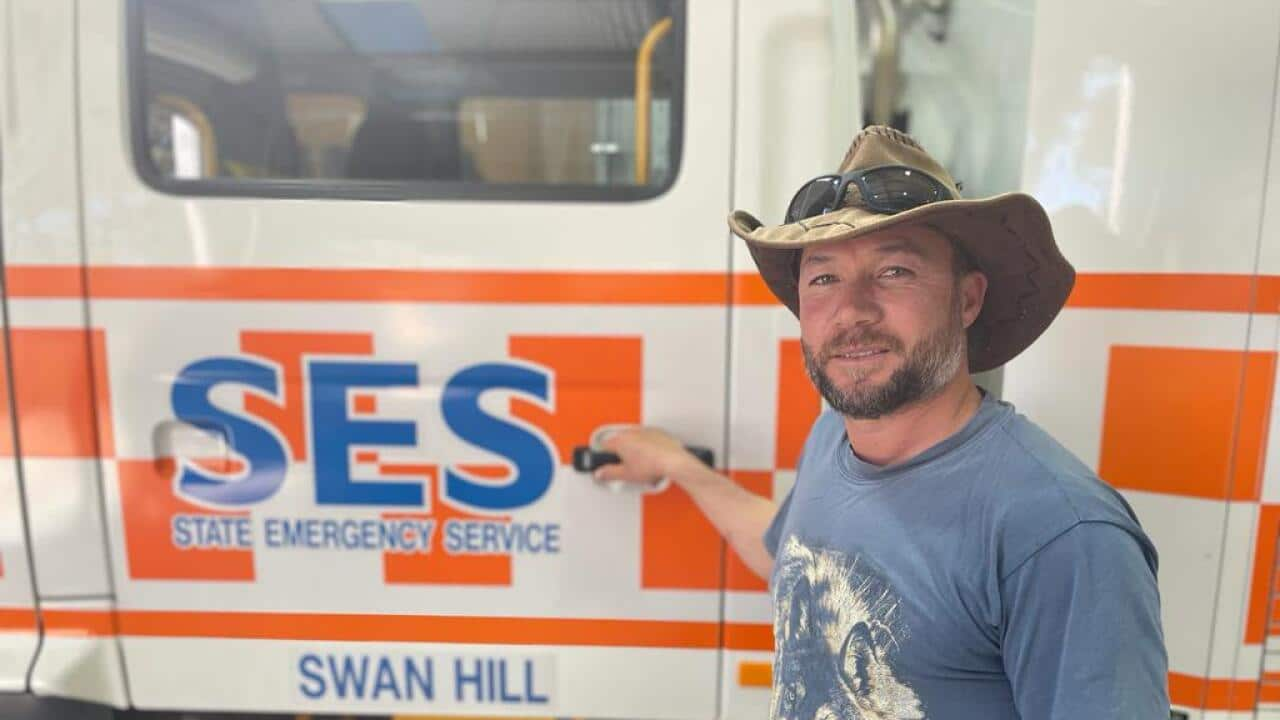Ghulamreza Haidari has not seen his wife Jamila or son Ali since he left Afghanistan in 2012, facing persecution as a Hazara man.
Ali was 7 when he left, he is now 20.
Ali didn't know the alphabet then and now is trained as a teacher. His father says the pain of missing so much of his son's life is unimaginable.

Ghulamreza Haidari has not seen his wife Jamila or son Ali since he left Afghanistan in 2012. Source: Supplied
"You see in the park, the people walking with their relatives and their kids and their wife and with their girlfriend and it's so beautiful. But I haven't had this right for 12 years.
"I'm not living, just alive."
Haidari's plan was for his family to follow him, but he claims this hasn't been possible because of his visa status — he's been on a series of bridging visas since he arrived in 2013.
do not automatically enjoy the same rights as many other visa holders or Australian citizens when it comes to studying, working or travelling overseas.

Ghulamreza Haidari's son Ali is now trained as a teacher in Afghanistan but lost his job when the Taliban reclaimed power. Source: Supplied
After , Ali was fired and Jamila has been practically housebound due to the .
"Hazara people are more discriminated [against] in Afghanistan. He didn't know the Pashto language and he lost his job," Haidara said.
In 2017 Ghulamreza applied for a Temporary Protection Visa to work in Australia as a chef, with the hope of eventually getting permanent residency and reuniting with his family, but the application was rejected.

Source: Supplied
He did not have the right to work until 2017, then lost work rights again, before recently getting it back.
Having worked as a chef in Afghanistan and Pakistan, he is now an Uber driver and has recently applied for a job as a bus driver, which he says is "his dream," but has only been able to pursue this career recently due to his work restrictions.
He says not having full work rights during his time in Australia has worsened his mental health.
Australia's economy would receive an $9 billion boost and an injection of 44,000 additional jobs annually if skilled migrants and refugees already in Australia were "properly harnessed", according to new research commissioned for World Refugee Day on Thursday.
Over 10 years, this would add $70 billion to Australia’s GDP, the report by Settlement Services International and Deloitte Access Economics says.
"At a time of skills shortages, declining productivity, and an urgent need to transition to net zero, it is more important than ever to ensure all workers in Australia can fully use their skills and expertise."
The report lists common barriers to work for migrants including: insufficient English language proficiency for employment contexts, challenges with qualification recognition and licensing, intersecting barriers for women — especially as secondary applicants and discrimination in the labour market, particularly given employer preferences towards local experience.
In June 2023 Immigration Minister Andrew Giles announced the federal government would bankroll a $1.5 million package for a social enterprise that helps
The Department of Home Affairs said it does not comment on individual cases.
"The Government has taken steps to reform the migration and protection visa review processes by abolishing both the Immigration Assessment Authority and the fast track assessment process," a spokesperson said.
"Australia is committed to its international obligations and does not return people who engage Australia’s protection obligation to a country where they may face persecution or certain other types of harm."
"Those with new, credible protection claims relating to changes in their country of origin or personal circumstances, may request Ministerial Intervention".











